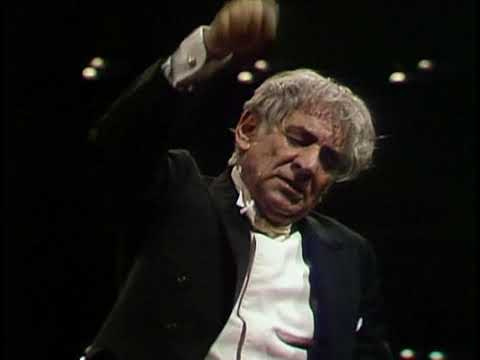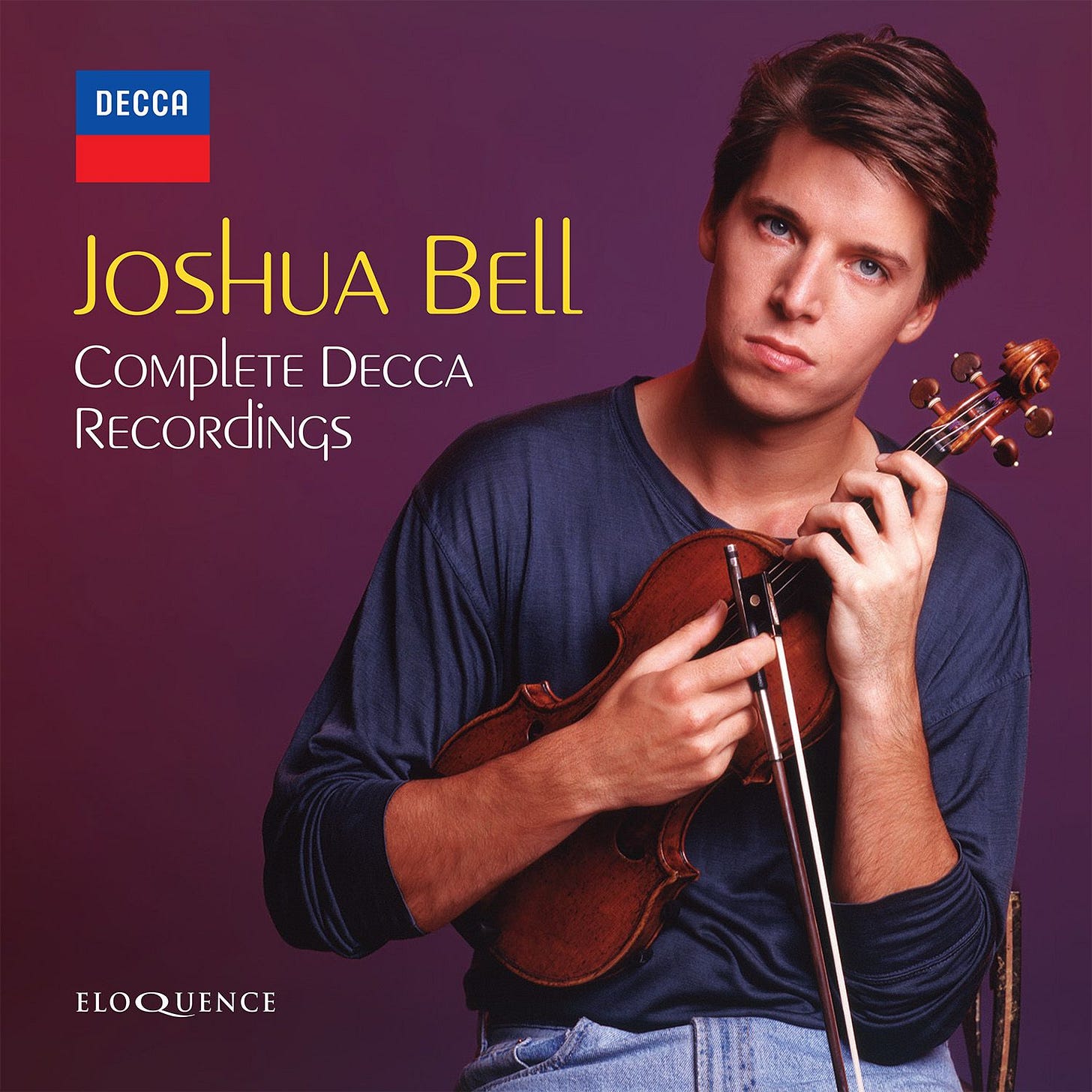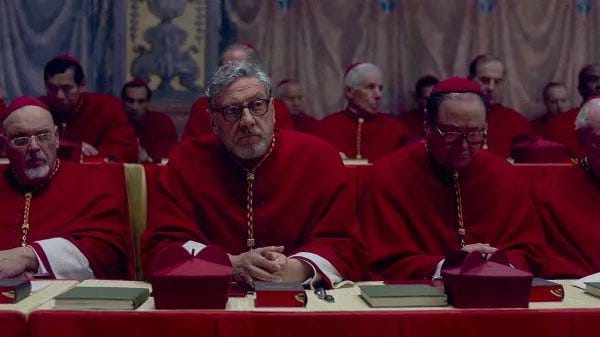📝 Thanks for reading Fran Magazine, a blog by Fran Hoepfner (me). Your subscriptions are welcome and encouraged for regular updates sent to your inbox (email, Substack, or both). Feel free to follow me on Instagram or Letterboxd. 📝
On Wednesday night at the NYFCC awards, I ran into Jordan Hoffman, who I often see at the New York Philharmonic because we both have a penchant for going on Thursday nights. “Guess where I’ll be tomorrow,” I said to him, and he asked where, and I said, “David Geffen Hall” and he said, “Me too.” There you go. The NYFCC was both fun and weird and a bit sad; I wrote about it here for Vulture.
The program consisted of Mario Castelnuovo-Tedesco’s1 Merchant of Venice Overture, Joshua Bell playing Dvorak’s Violin Concerto in A minor, and Tchaikovsky’s Fourth Symphony. The overture was, as overtures tend to go, fine. I prefer when an overture is more of a short symphony piece (like Shostakovich’s Festive Overture) than when it resembles that of film and theater — samples of prominent themes that we’re not ever hearing the full versions of because we’re not at the movie or regular theater. Castelnuovo-Tedesco was a prominent film composer who taught people like John Williams and André Previn. I’d never seen Joshua Bell perform before; if you asked me at any point in my life up until two hours before the concert how old Joshua Bell was, I’d say, “He’s probably 38.” Well, he’s 57. In my head, he has always been “the sexy violinist.”
I thought Bell himself was great, but there’s a reason why the Dvorak Cello Concerto is more famous than the violin one.
But the real star, of course, was the Tchaikovsky. Jordan wrote about his affection for Tchaikovksy’s Fourth over on his blog, but my personal affection for the piece has been slowly stewing for a number of years. For the longest time, my favorite symphony of Tchaikovsky’s was the Fifth, which I’ve written about here before. I’ve seen his Fifth Symphony performed more times than any other, not necessarily intentionally, but not unintentionally either. The Russian composer’s post-divorce slog-turned-triumph is a great and deeply stirring exercise in learning to make use of the hand you’ve been dealt, breaking through fate and obligation.
I saw Tchaikovsky’s Fifth again this past summer doing the big world symphony week at Carnegie Hall, when a bunch of international youth orchestras come to play concerts, and I thought — through no fault of the youth orchestra in question — “I think I’ve heard this enough times now.”
Tchaikovsky’s Fourth, on the other hand, will occasionally pop up on the radio or I’ll queue it up in Apple, but I’ve really only seen it performed the one time, and if you asked me to hum the music, I’d say, “This is the one that Dario Marianelli stole for Joe Wright’s Anna Karenina.”2
I saw Tchaikovsky’s Fourth performed in London3 back in 2016 on a solo vacation. I sat front row, and it was kind of like having my face melted off. For all that his Fifth Symphony builds to a kind of overwhelming wall of noise, the escalation of tension and humor in the Fourth has only grown more and more appealing to me with age. When I sat for the symphony this past Thursday night, I found myself laughing out loud at the Fourth Symphony multiple times — this thing is funny for real.
I encourage you to sit and listen to the whole thing, but if you want to see what I am getting at, I’d tell you to start listening (and watching!) around 30:15. About 80% of the “Scherzo, Pizzicato ostinato: Allegro” is, well, in pizzicato, or plucked strings. The ensuing texture of the sound is wonderful and riveting, the upbeat tempo lending the whole thing a Looney Tunes-esque affectation. I think part of the enduring appeal of Tchaikovsky’s music is that textural richness — you never know how melodies will sound or how he will orchestrate them, frequently indulging in surprise and ingenuity.
It helped, of course, that the conductor of the evening was Daniele Rustioni making his NY Philharmonic debut. It seemed, based on the program, that Rustioni does some straightforward concert conducting, but his bread and butter is conducting for opera (he will be joining the Met soon as a permanent Guest Conductor4). Rustioni, who is not very old5, bounced around on stage with Maestro-like gestures and dances. Whereas a number of currently working conductors, young and old, opt for more “modern” takes on concert attire6, Rustioni was there in the “conductor classic” — a tailcoat. I thought he was doing a kind of old-timey gestural thing; we all know it’s a little bit funny to wear a suit with tails. At first, I found his expressive conducting a bit over-the-top7, but I came to realize over the course of watching that he was not doing any of this for the audience. He was doing it for the musicians. The nature of pit conducting and opera conducting is such that you are really not on stage, and not on display in any serious way, and frequently you find yourselves playing the same thing over and over again. There’s got to be a way to make that fun — beyond the fact that most of the music is so great — and that’s where all the dancing and winking and waving and urging comes from. And the musicians of the philharmonic really did seem to be loving it, smiling and almost laughing along with him. You really never see those guys so cheerful.
As fun as that third movement of Tchaikovsky’s Fourth is, the finale is where the claws come out, so to speak. The movement is about eight and a half of nine minutes long, and this thing, not unlike the finale to his Fifth Symphony, ends for four of those nine minutes. I said as much the Phil that night, but I think if you took the final few minutes of every piece of composer’s works, far and away the best at finales would be Tchaikovsky.8 The finale builds up to a climax so loud and fast, constantly pulling back on itself before jumping forward again, the fakeouts and falseness getting increasingly silly and audacious.
In case you’re like, “I don’t have time to watch bisexual Maestro conduct for 45 minutes and I need just the fourth movement only conducted by someone who has met Gwen Stefani,” here’s Gustavo Dudamel and the LA Phil’s take on that part — with plenty of shots focused on Dudamel so you can get the full gist of how much fun this must be to conduct.
In short:
Sunday Dispatches WILL return, but probably not until February (sorry). Thank you all for the kind words about the new gig and the magazine going forward. I am excited to sit down and bang out little posts like this one whenever I’m able.
Realistically, they are actually just both drawing on similar Russian folk songs, but the resemblance is pretty apparent!
Study abroad implicitly mentioned.
Not really sure what this means, unfortunately. The nature of and differences between jobs like “Music Director” and “Lead Conductor” and “Guest Conductor” are still a little too esoteric for my casual listening brain to fully comprehend and I’m frankly too lazy to look into it. In my head, this job is like how we had a permanent in-house substitute teacher in high school. Feel free to correct me if I am wrong.
He’s younger than Joshua Bell!
Jaap van Zweden’s black shirt/high collar combo comes to mind, as does Santtu-Matias Rouvali’s whole deal. Obv for the women it’s kind of a whole other thing — I like Susanna Mälkki’s duster (?) but find that Nathalie Stutzmann has the most swag.
“Italian”
Obviously this is a stupid and arbitrary thing to do — but it would be kind of interesting to see…







agape at bell’s age. even just reading the words joshua bell in your opening pars i was like “omg the hot one”
I get so pumped whenever anybody talks about classical music lol. Ive been fully Maestro-pilled
That thought experiment on best finale-deliverers is a neat one. I do love Mahler finales but thinking about it more he actually might be the equivalent champion for 1st movements. Tchaikovsky really does have such knockout endings but he also slaps in the middle movements- his dances are just so rich